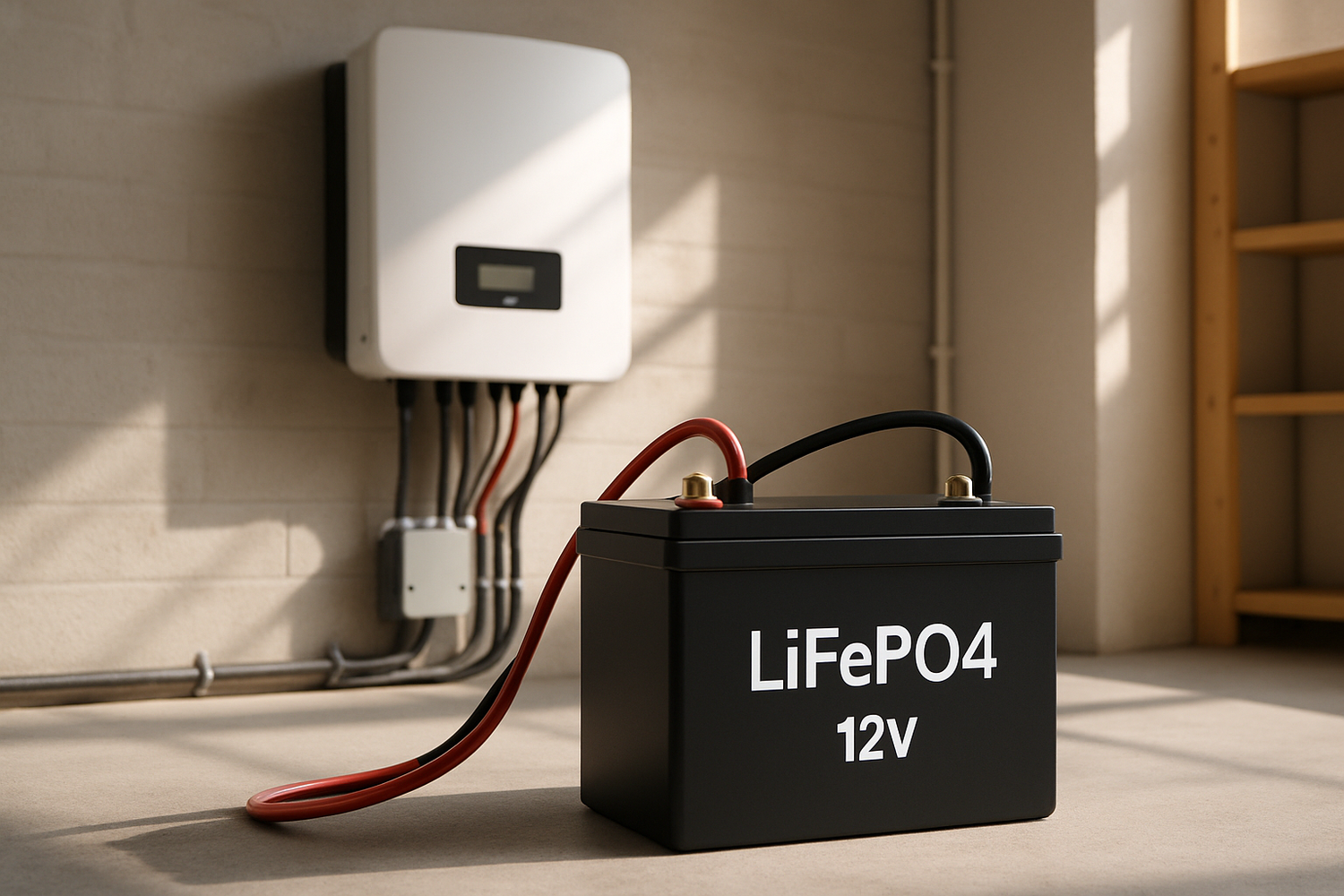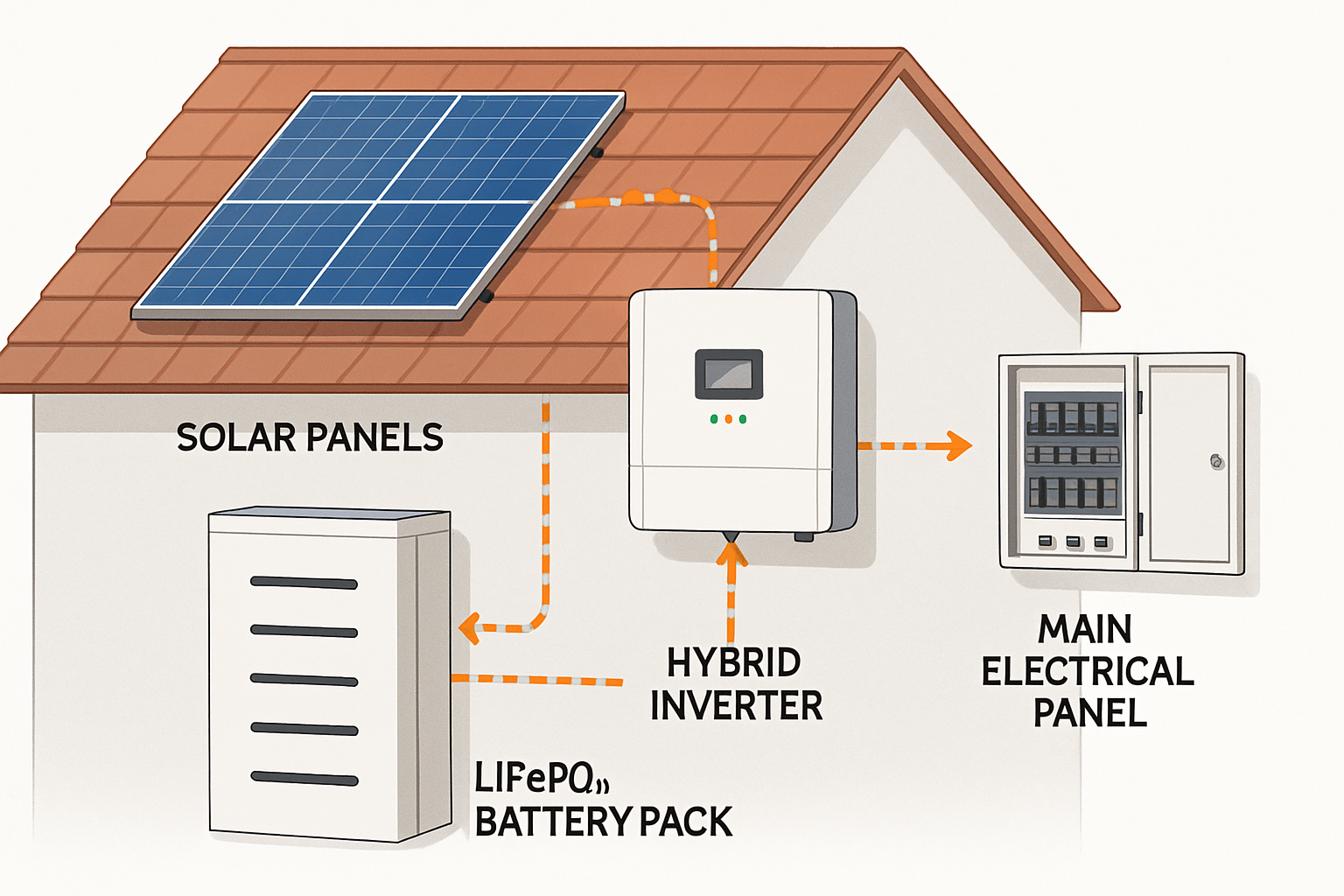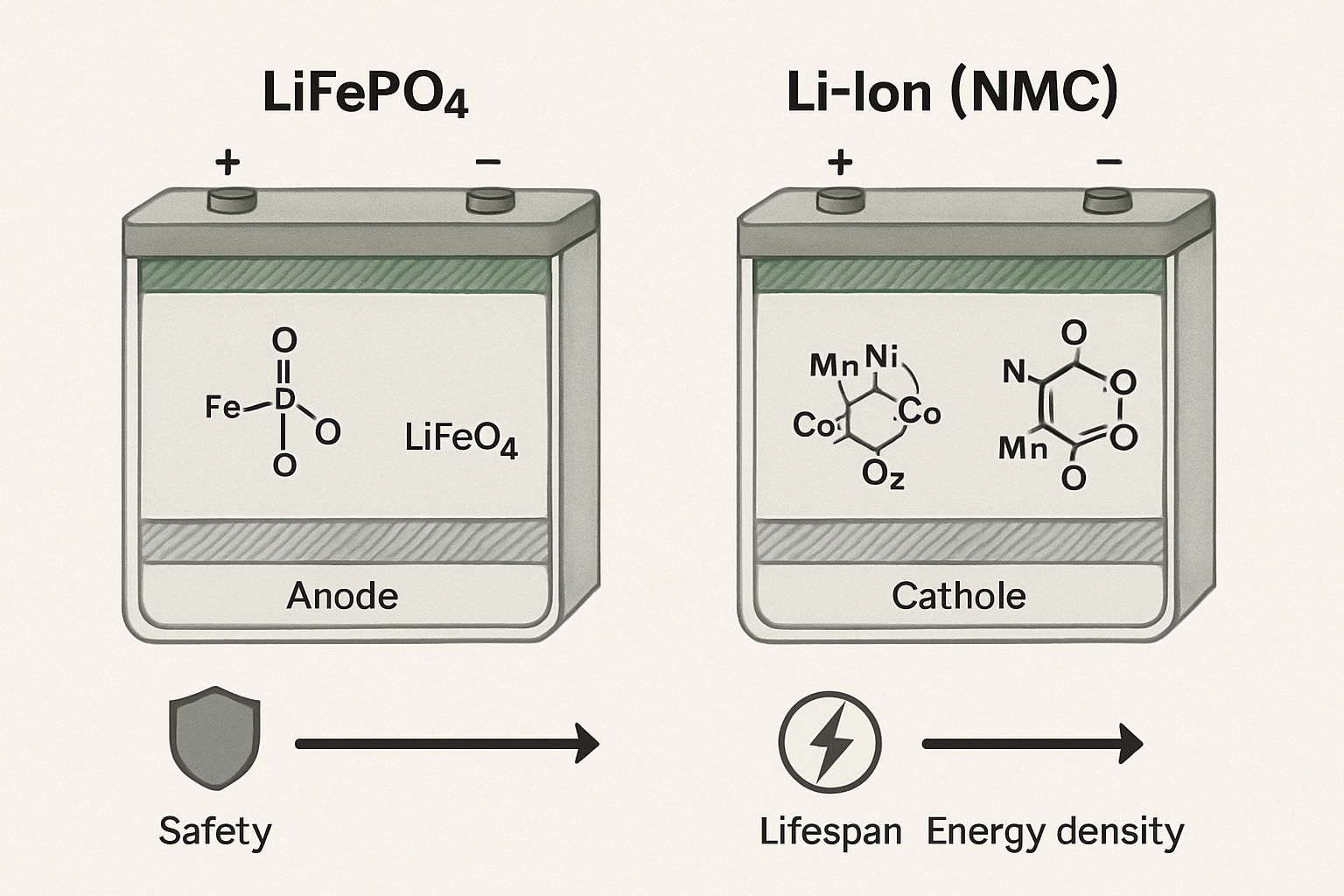Pairing your home solar panels with the right battery storage is a critical step toward energy independence. While various battery technologies exist, the 12V LiFePO4 (Lithium Iron Phosphate) battery has emerged as a superior choice for residential applications. Its unique chemistry and robust design offer a combination of longevity, safety, and performance that older technologies cannot match. Integrating a LiFePO4 battery into your home solar system allows you to store the clean energy you generate, providing reliable power day and night.
Superior Lifespan and Long-Term Value
One of the most compelling reasons to choose a 12V LiFePO4 battery for your home solar storage is its exceptional lifespan. This longevity directly impacts the overall value and return on your investment in solar energy.
Extended Cycle Life
A battery's cycle life refers to the number of full charge and discharge cycles it can endure before its capacity significantly degrades. LiFePO4 batteries excel in this area, typically offering between 3,000 to 7,000 cycles. In contrast, traditional lead-acid batteries often provide only 500 to 1,000 cycles. This means a LiFePO4 battery can last for a decade or more under normal use, far outlasting its lead-acid counterparts and reducing the frequency of costly replacements.
Lower Total Cost of Ownership
While the initial purchase price of a LiFePO4 battery may be higher, its extended lifespan results in a lower total cost of ownership (TCO). When you factor in the replacement costs and maintenance associated with other battery types, the LiFePO4 option becomes a more economical choice over the long term. This makes the solar panel battery integration not just an operational upgrade, but a sound financial decision. As the Electricity Storage Valuation Framework from IRENA suggests, evaluating the full lifecycle of storage solutions is essential to understanding their true value.
Enhanced Safety and Stability
Safety is a primary concern for any home energy system. LiFePO4 chemistry provides a level of safety and stability that sets it apart from other lithium-ion technologies, offering peace of mind for you and your family.
Inherently Stable Chemistry
The chemical structure of Lithium Iron Phosphate is exceptionally stable. The phosphate-based cathode material is not prone to overheating or thermal runaway, a risk associated with some other lithium-ion chemistries. This inherent stability makes LiFePO4 batteries one of the safest options for a home solar system, minimizing the risk of fire or explosion even under harsh conditions.
Advanced Battery Management System (BMS)
Modern 12V LiFePO4 batteries come equipped with a sophisticated Battery Management System (BMS). This internal electronic system continuously monitors the battery's state, managing charging and discharging rates. The BMS provides crucial protection against over-voltage, under-voltage, over-current, and short circuits, ensuring the battery operates safely and efficiently at all times.
High Efficiency and Performance
A LiFePO4 battery doesn't just store energy; it does so with remarkable efficiency. This high performance ensures that you get the most out of every ray of sunshine your solar panels capture.
Greater Depth of Discharge (DoD)
Depth of Discharge (DoD) indicates the percentage of the battery's total capacity that can be safely used. LiFePO4 batteries feature a DoD of 90-100%, allowing you to use nearly all the stored energy. Lead-acid batteries, however, have a recommended DoD of only 50% to avoid damage and premature failure. This means a 100Ah LiFePO4 battery provides almost double the usable energy of a 100Ah lead-acid battery.
Consistent and Reliable Power Output
LiFePO4 batteries maintain a stable voltage level throughout most of their discharge cycle. This consistent output ensures that your home appliances run smoothly and efficiently without the voltage sag commonly experienced with lead-acid batteries as they deplete. This reliability is crucial for powering sensitive electronics and ensuring a seamless transition during a power outage. The U.S. Department of Energy highlights how microgrids with reliable storage, like those using solar-plus-storage, can strengthen community resilience by providing a steady supply of electricity.
| Feature | 12V LiFePO4 Battery | Traditional Lead-Acid Battery |
|---|---|---|
| Cycle Life | 3,000 - 7,000+ cycles | 500 - 1,000 cycles |
| Depth of Discharge (DoD) | 90-100% | 50% |
| Efficiency (Round-Trip) | ~95% | ~80-85% |
| Maintenance | None | Regular fluid checks required |
| Safety | High thermal stability, low risk | Risk of gas leaks, acid spills |
Compact, Lightweight, and Maintenance-Free
The physical characteristics of a 12V LiFePO4 battery offer practical advantages for installation and daily use, making it a convenient and user-friendly solution for home solar storage.
High Energy Density
Energy density refers to the amount of energy stored relative to the battery's physical size and weight. LiFePO4 batteries have a much higher energy density than lead-acid batteries. This allows them to be significantly smaller and lighter while providing the same or even more capacity. Their compact form factor makes installation easier, especially in locations with limited space, such as RVs, cabins, or utility closets.
Zero Maintenance Operation
Unlike flooded lead-acid batteries that require regular monitoring of electrolyte levels and cleaning of terminals, LiFePO4 batteries are completely maintenance-free. Their sealed design means there are no water levels to check and no corrosive acid to handle. This 'install and forget' convenience saves you time and effort over the battery's long life. According to the IEA, reducing operational burdens can encourage wider adoption of distributed solar assets, and maintenance-free storage is a key part of that equation. As noted in their Next Generation Wind and Solar Power report, installing battery storage can effectively increase self-consumption and system friendliness.
A Smart Investment for Energy Independence
Choosing a 12V LiFePO4 battery for your home solar storage is more than just a technical upgrade; it's a strategic investment in a reliable and sustainable energy future. The combination of a long lifespan, superior safety, high performance, and maintenance-free operation makes it an ideal foundation for any LiFePO4 battery home solar system. By storing your solar energy effectively, you reduce your reliance on the grid, lower your electricity bills, and gain the security of having backup power when you need it most. For a complete overview of key metrics, this ultimate reference on solar storage performance provides valuable insights into making an informed decision.
Disclaimer: This article is for informational purposes only and does not constitute financial or investment advice. Please consult with a qualified professional before making any decisions regarding your energy system.
Frequently Asked Questions
Is a 12V LiFePO4 battery worth the higher initial cost?
Yes, for most users, it is. While the upfront cost is higher than traditional lead-acid batteries, the long-term value is significantly greater. The extended lifespan (up to 10 times longer), higher efficiency, deeper depth of discharge, and zero maintenance requirements result in a lower total cost of ownership over the battery's life.
Can I use a LiFePO4 battery with my existing solar panels?
Absolutely. LiFePO4 batteries are compatible with most solar panel systems. However, it is crucial to ensure your solar charge controller is compatible with LiFePO4 chemistry. Many modern charge controllers have selectable settings for different battery types, including LiFePO4, to ensure proper and safe charging.
How does temperature affect a LiFePO4 battery?
LiFePO4 batteries perform well across a wide range of temperatures. They are much more efficient in high temperatures compared to lead-acid batteries. For cold weather, most LiFePO4 batteries have a built-in Battery Management System (BMS) that will prevent charging below freezing (0°C or 32°F) to protect the battery cells from damage. Some models even include built-in heaters for reliable performance in colder climates.





Leave a comment
All comments are moderated before being published.
This site is protected by hCaptcha and the hCaptcha Privacy Policy and Terms of Service apply.